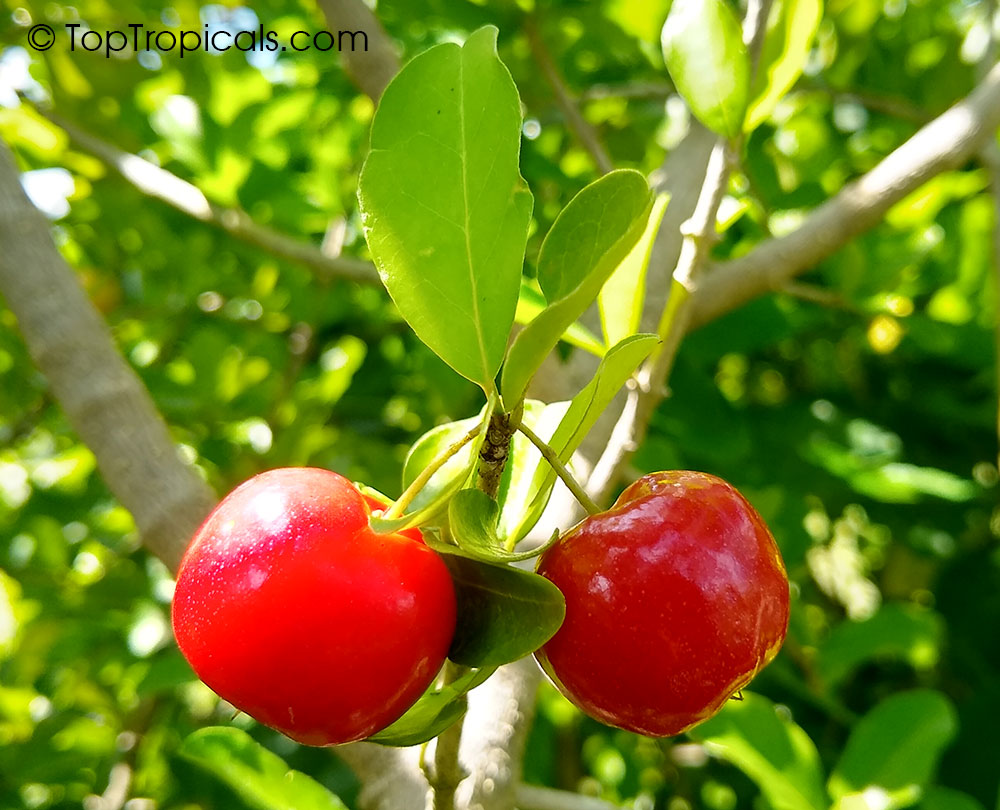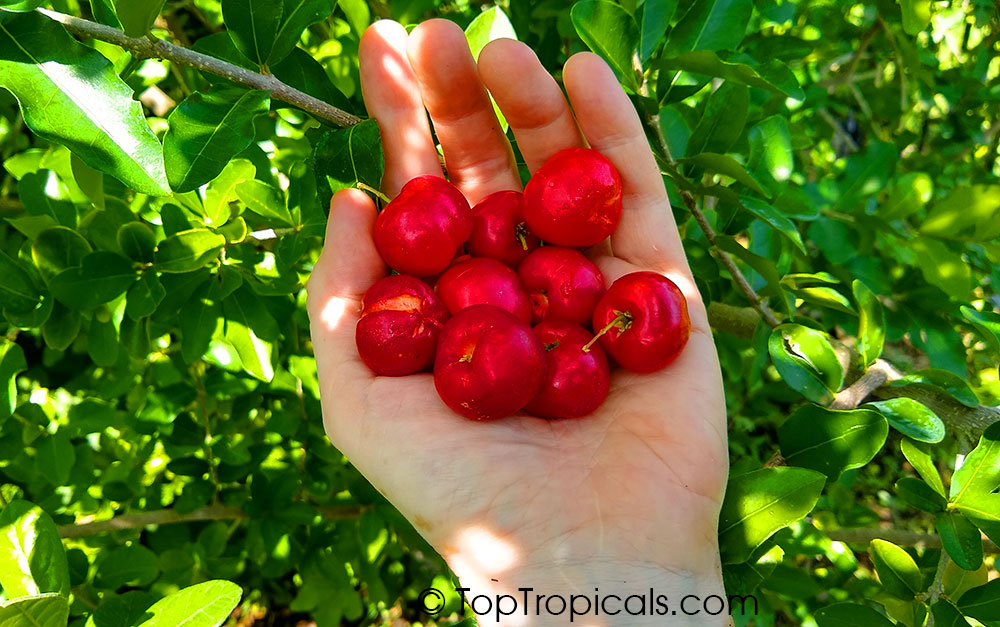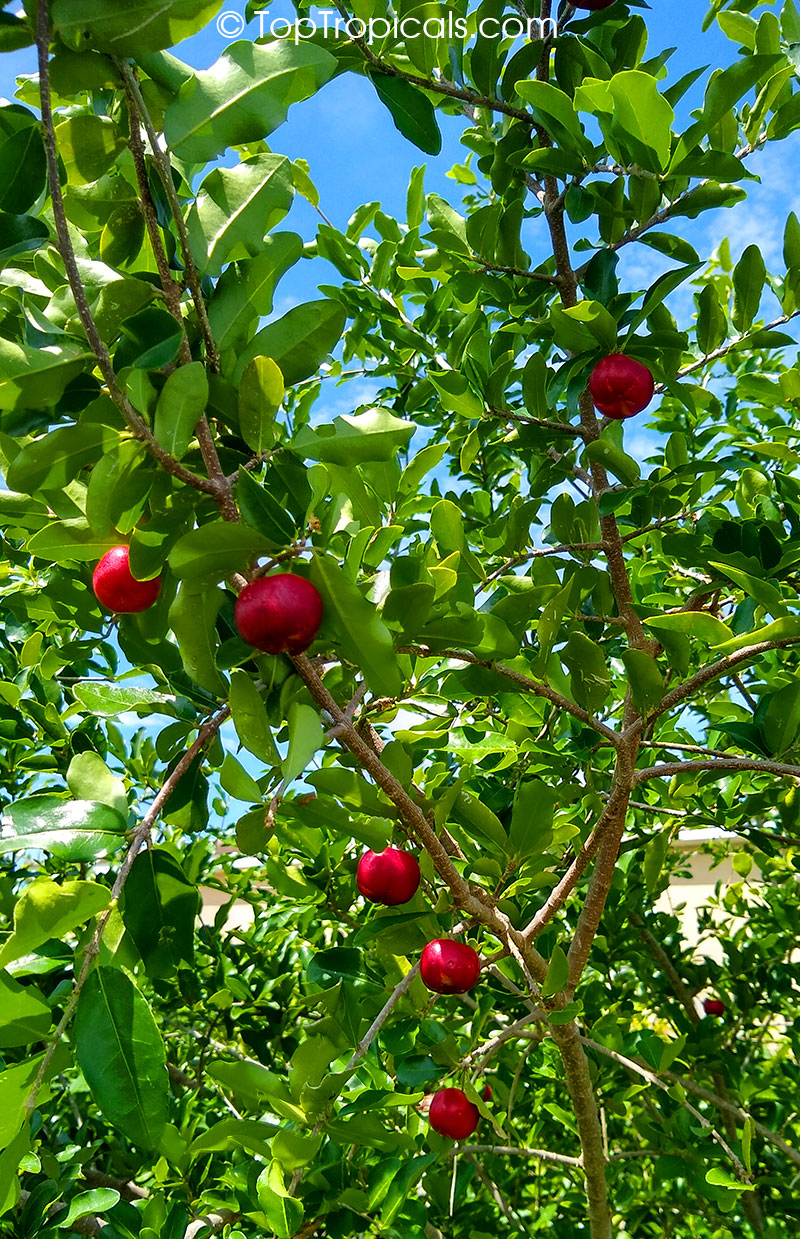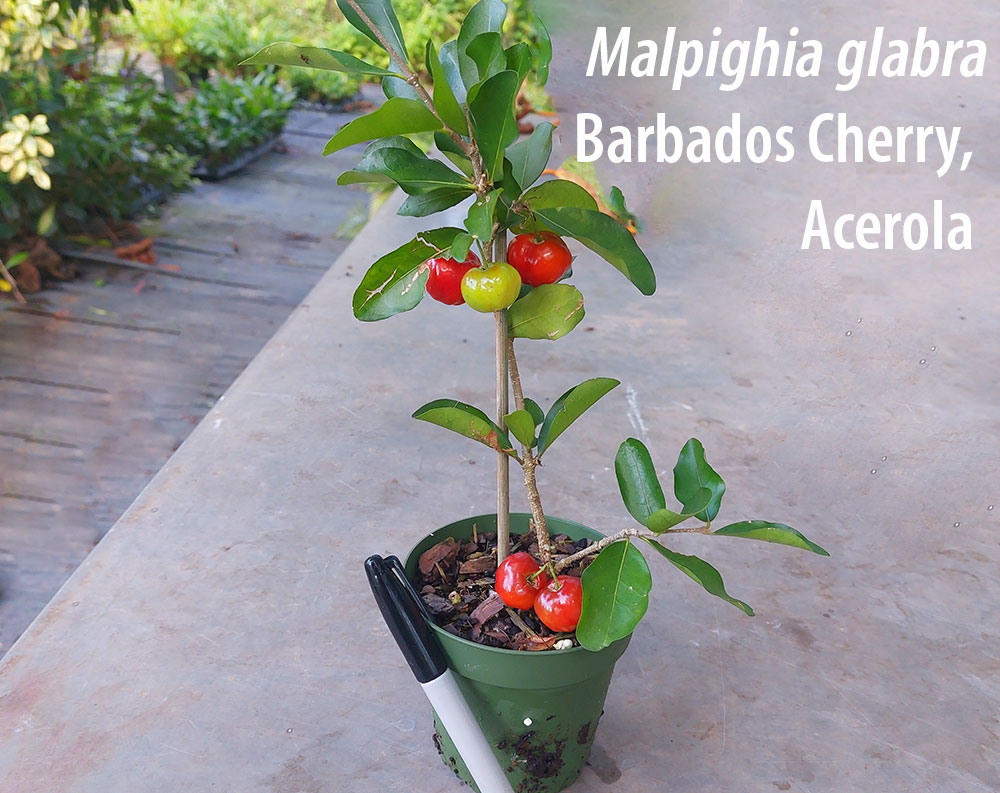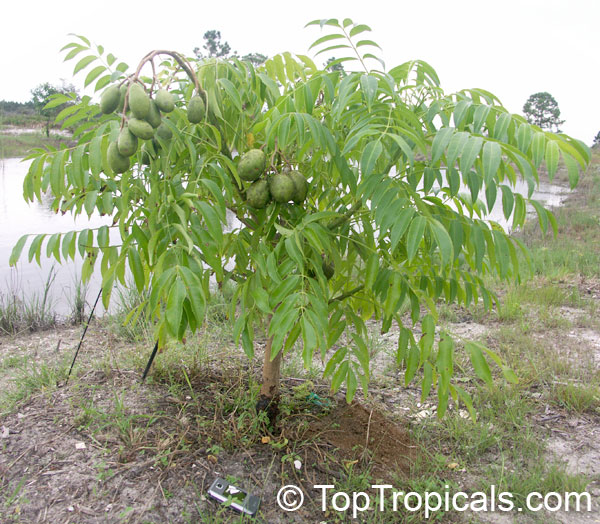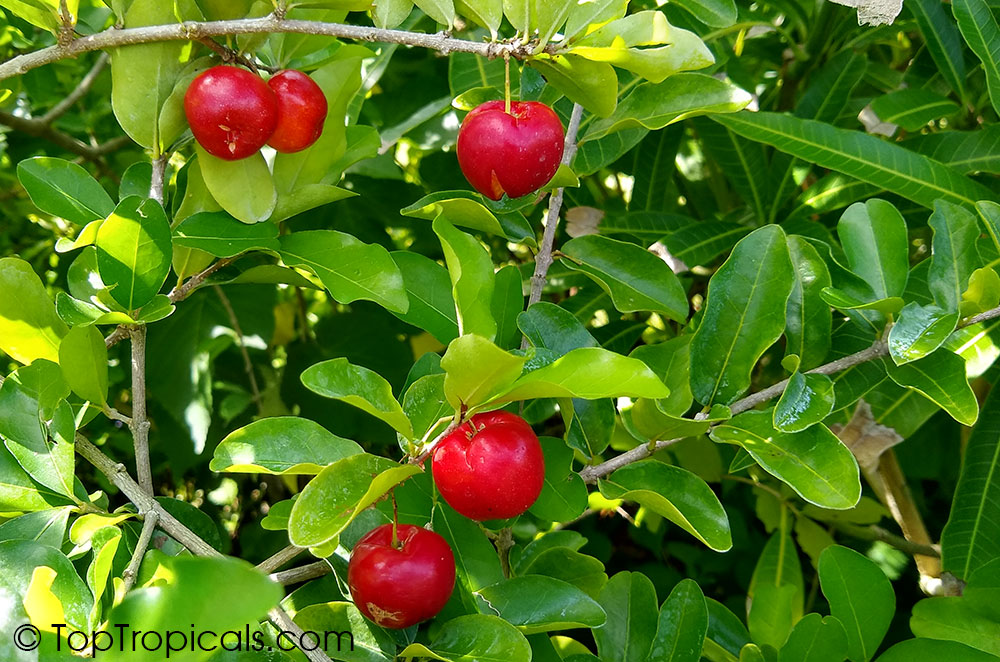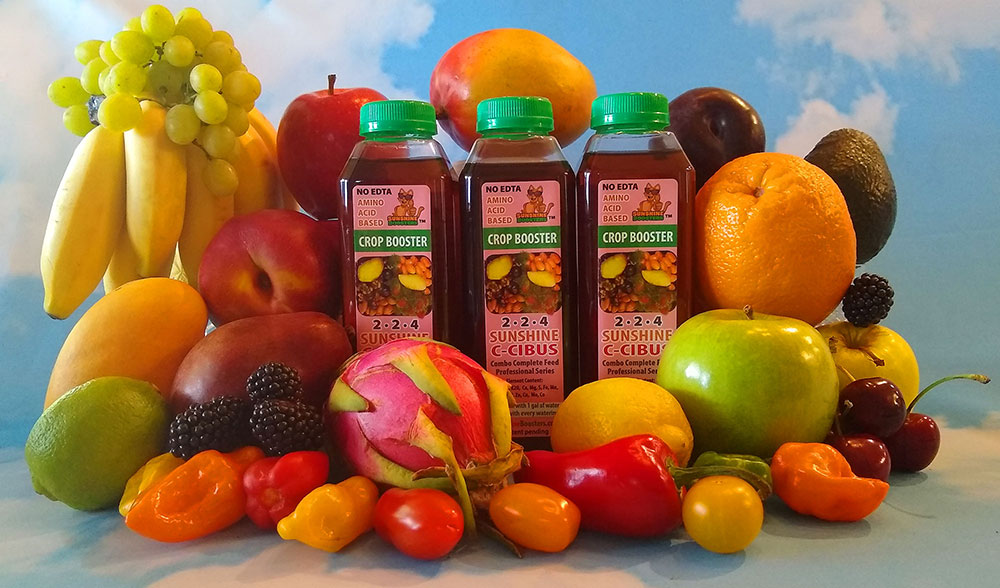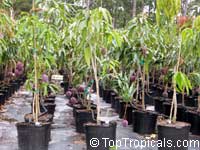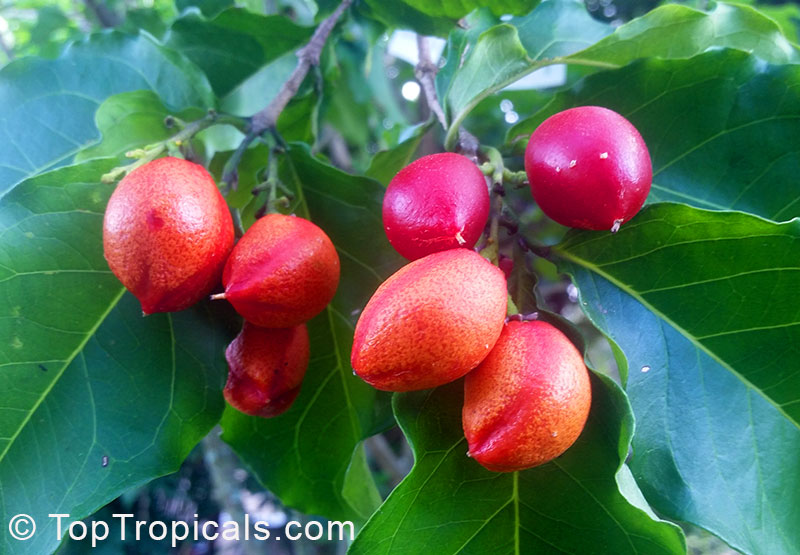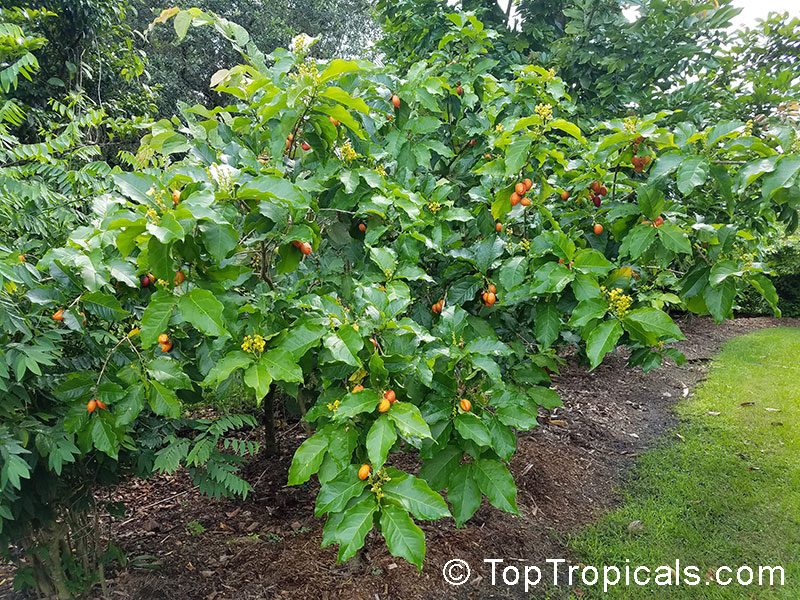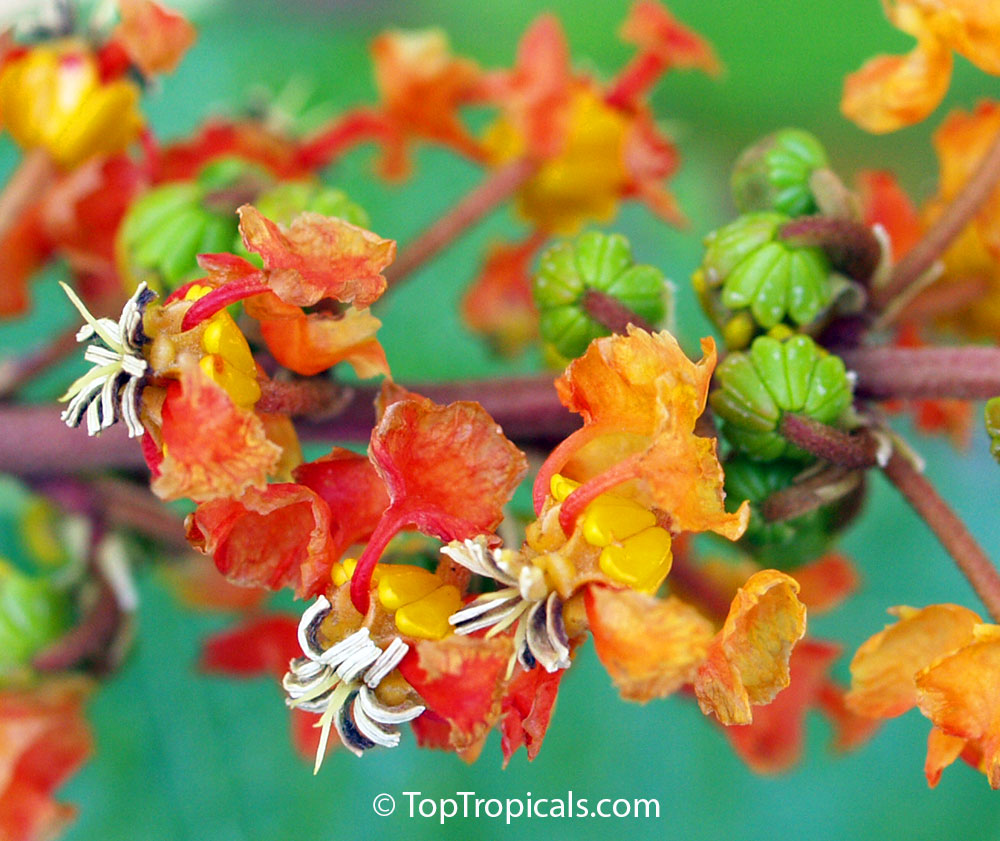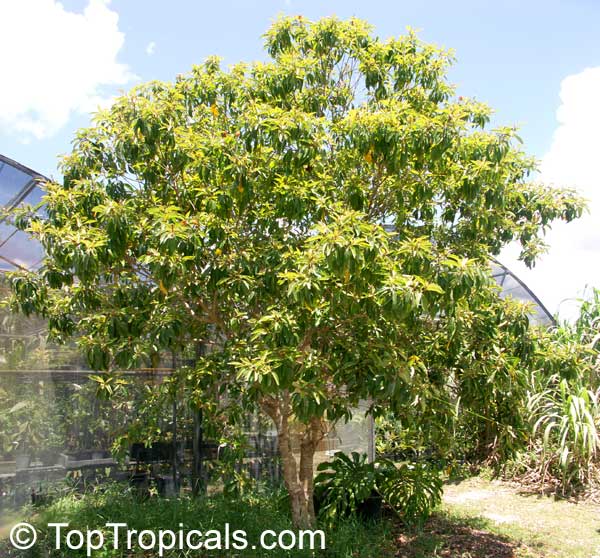Planting during hot summer
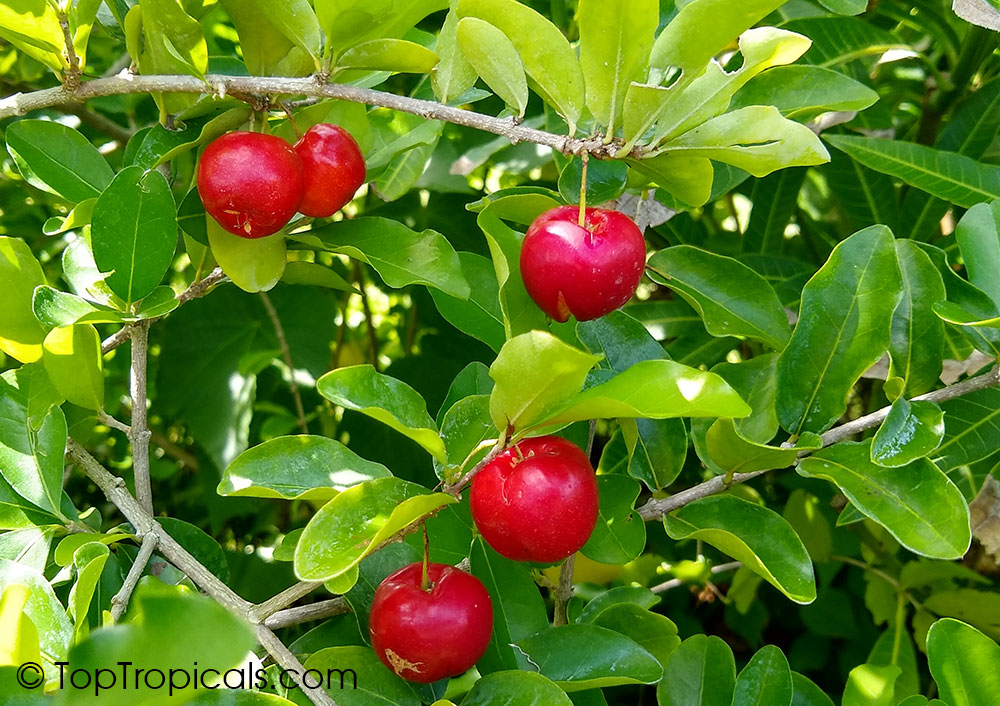
In the photo: Malpighia glabra - Barbados Cherry, Acerola
Q: We just moved to Florida from New York. The weather is so hot
and I wonder if I should wait till Fall to plant my garden? I tried to plant some seeds of annuals but nothing grew, just weeds. I also planted
tomato seeds, they germinated but died in few days. What am I doing wrong?
A: Growing from seeds during hot season can be tricky. Here in Florida, we still can grow anuals and vegetables from seeds, but only during
winter season. Annuals and tomatoes need cooler temperatures and protection from
rain water which we have in abundance during summer. Combination hot + wet
can kill those seedlings. On the other hand, seeds of tropical species love the heat and
humidity, and germinate in no time, they just require a little experience.
However, Summer is a perfect time to plant and establish starter plants in your garden.
Five advantages of summer planting
1. Root growth. High temperatures promote rapid root growth - this is one secrets of a plant nursery. If you grow plants in pots, putting a pot on top of
black ground cover will increase the effect, and the roots will grow even faster than the tops! This is a great head start for a plant. Make sure to provide adequate watering.
2. Fast development. With bright sun and longest day light, photosynthesis is more efficient. In simple words,
during hot summer tropical plants have faster metabolism, they produce cells faster and grow leaves and stems faster.
3. Bugs be gone. Bright sun in combination with good air circulation will help to stay away from insects, leaf fungus, and
other diseases.
4. Fertilizing can be generous and will be most efficient. In summer, there is less chance to overdose, as plant food is consumed fast, and summer rains help to prevent nutrient lock up in soil.
5. Rain water works like magic. Rainy season in Florida is our blessing. It can not be replaced by sprinklers or even daily hose water. Rain penetrates
evenly and saturates not only a root ball but also the surrounding area that gives room to spread even bigger roots. Rain water
also works like a "flush" to rinse off all excessive salts that may build up in soil.
As a result, plants will establish faster and grow bigger before
winter, which will give them a better chance to survive possible cold spells.
Plant in summer and watch plants grow healthy and happy
every day!
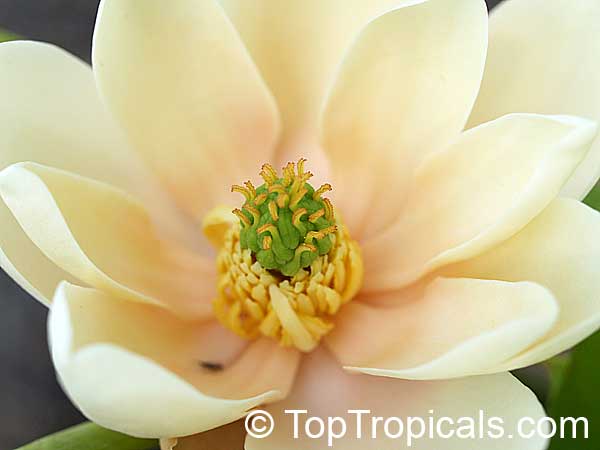
In the photo: Magnolia virginiana - Sweet Bay

